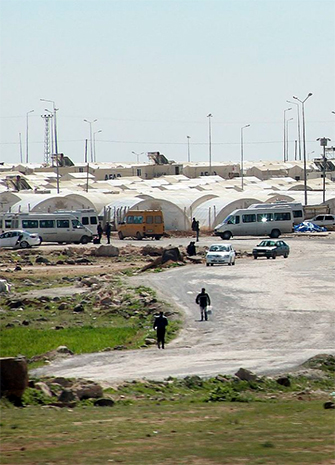A group of graduate students in clinical developmental psychology at York University united recently to serve a common cause: to ensure a welcoming environment for incoming refugees.
Coming from similar academic backgrounds and having extensive experiences in community settings serving children, youth and families, this group of students created the Psychology Graduate Student (PGS) Refugee Education Initiative. This initiative is in collaboration with the Syria Response & Refugee Awareness Project at York University and is supported by the Psychology Graduate Student Association.

With the recent surge of refugees coming to Canada, there is a need for educational seminars to complement the training of sponsorship teams and volunteers, and to ensure a community that is well-equipped to host and integrate newcomers, said Jala Rizeq, one of the students leading the initiative.
As a result, the team developed educational presentations based on research and practice in developmental psychology. In these presentations, they introduce a model that explains the multiple factors, influencing refugees in Canada, and highlight those factors that contribute to their integration and well-being.
Their presentations stress the importance of a number of key points, including: the complex and diverse nature of refugees’ experiences; the strength and resilience of refugees; integration into Canadian society; and cultural sensitivity (awareness, responsibility and respect of other cultures).
“It has really been heartening to see Jala Rizeq and her fellow psychology graduate students launch this thoughtful and valuable initiative, and to partner with them in it,” said John Carlaw, project lead for the Syria & Refugee Awareness Initiative. “Their initiative has been very well received by sponsor teams, including a classroom presentation to the ‘Students for Syrian Refugees’ group, upcoming work with the Keele campus’ local World University of Canada (WUSC) committee and has been made available to teams across the wider Ryerson University Lifeline Syria Challenge (RULSC) program as well. The RULSC program incorporates four GTA universities.”
The team also provided brochures with a comprehensive list of community resources and services in the GTA that serve refugees, as well as educational and mental health resources available for volunteers and sponsorship teams. These resources have been shared with sponsorship teams at York University, Ryerson University and the University of Toronto.
The PGS Refugee Education Initiative has been well-received by the York University community. To date, they have presented to the Students for Syrian Refugees Team, attended sponsorship events at York University and the University of Toronto, and have become actively involved with the York U Scientists team and the WUSC committee at York University.
The initiative has received positive feedback that continues to motivate the team to further expand their impact. Ultimately, the team emphasizes the importance of empowering those working with refugees, through building a healthy, safe and welcoming environment for those arriving to our community.
“The Psychology Graduate Students Refugee Education Initiative is a fantastic example of the types of positive contributions that the York community can make to welcome refugees and prepare our communities for their arrival,” said Carlaw.
For more information on the PGS Refugee Education Initiative, visit osgoode.yorku.ca/psychology-graduate-students-pgs-refugee-education-initiative, and for the Syria Response & Refugee Awareness Project at York University, visit osgoode.yorku.ca/refugees. The team can also be reached through email at pgsref@yorku.ca.


